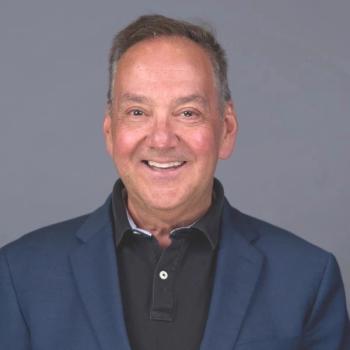
- Psychiatric Times Vol 28 No 7
- Volume 28
- Issue 7
Death Anxiety and Health Reform
The United States has often been characterized as a nation of hypochondriacs. This is patently not true but TV bombardment by pharmaceutical advertisements stirs anxiety and illness fears in the many worried well in our midst.
Ride public transportation, relax in a coffee shop, mill around anywhere people congregate. People speak anxiously of medical concerns. The United States has often been characterized as a nation of hypochondriacs. This is patently not true (and many of us do truly have authentic disease), but TV bombardment by pharmaceutical advertisements stirs anxiety and illness fears in the many worried well in our midst. If drug ads can stir one’s health anxiety, threats to the health care system itself can practically lead to panic-whatever one’s political sentiments.
Health anxiety and fear of illness can reasonably be considered the most basic of natural human attributes. Fitness clubs, diet fads, cosmetic clinics, health food shops, and vitamin sales are testimony to the extent to which people are preoccupied with their bodies. From the first startle reaction of a baby who fears being dropped to the mature adult fear of having one’s body invaded by medical instrumentation, avoidance of bodily harm and protection of the body’s integrity are measurable reactions. Physical responses to potentially harmful experiences may include perspiration and variations in heart rhythm, blood pressure, pulse rate, and bowel and bladder control as well as other, more mysterious bodily perturbations. The more mysterious, the more frightening! Even a visit to one’s trusted physician will elicit the well-documented and artifactual “white coat hypertension.” Hospitalization carries its own catalog of anxious and fearful expectations and fantasies (some of which sometimes become realities). An entire subspecialty of psychiatry has evolved to help patients (and their physicians and nurses) cope with these “routine” cases of the jitters.
So why should we be surprised at the explosion of fear, anxiety, and even anger, rage, and paranoia when the entire population is faced with major “adjustments” to its health care provision . . . especially when the proposals (no matter how potentially beneficial) are difficult to comprehend? Intimations of death in any form and especially by politicians opposed to health care reform (eg, those who invoke “death panels”) raise perhaps the greatest fear. Such suggestions prompt most of us to put off indefinitely the writing of wills and end-of-life directives, even the purchasing of life insurance. How often do we, paradoxically, postpone consulting a physician when we fear we may have some life-threatening ailment? Better to keep what one has than “risk” the unknown!
Fears of catastrophic bodily harm (fearfully equated with a potential for death) prompt some to resort to whatever means of self-defense (psychological or otherwise, firearms not excluded) they can find to fend off the impending threat. Intense anxiety is contagious and can catalyze a mob reaction to bolster one’s own feared defenselessness. Repercussions extend far beyond rational debate, politics, party affiliations, or economics. Didn’t we see this phenomenon many years ago with the public health proposal to fluoridate our water? Public outcry obscured, distorted, and corrupted any appreciation of scientific fact.
Paranoid fear that some amorphous agency (government, “public health,” organized medicine, even a foreign country) might tinker with our bodily integrity is so overwhelming that individuals will resist and oppose even that which may in fact be in their own best interest. Legislators repeatedly endorse bills that would seem to worsen the well-being of their constituents. The inability to comprehend the source of threat to one’s welfare can foster belief in conspiracies.
Patients who voluntarily seek “change” through psychotherapy know the counterintuitive experience of resisting the wished-for change. Long-forgotten are past resistances to the government-sponsored Medicare program that has benefitted so many seniors. Proposed changes in this program to provide better drug coverage through the imperfect Part D were traumatic for many. Fear of government intervention in the patient-physician relationship is vastly disproportionate to the reality of insurance company intrusion into that relationship. (I have rarely had Medicare tell me how to treat my patients, but I regularly experience such meddling from insurance companies).
Our health care “system” is complex, entrenched, and imperfect. Nonetheless, we have made remarkable progress. People are living longer and are in better health for most of their lives. They are the beneficiaries of remarkable technological advances (eg, MRI, CT). Yes, these advances are expensive. And the challenge of how best to administer health care requires the best minds we can recruit.
It has taken many decades to arrive at this point, partly because of individuals who oppose health care reform and the collective fear of change. We continue to have access problems, health care disparities, maldistribution of physicians and services, inflated malpractice suits, too few primary care doctors, and many other deficiencies. We cannot correct these deficiencies all at once. In fact, it will take many more decades to correct all the imperfections. But we must begin with small steps in order to get on with the process.
If and when death anxiety can be ameliorated, we will begin to make rational progress toward a more meaningful and equitable health care system. The repeal or defeat of a health care bill at this time runs the real risk of scuttling the entire process for even more decades to come-to the detriment of us all.
Articles in this issue
over 14 years ago
Addressing Postdeployment Needsover 14 years ago
Resources for Veteransover 14 years ago
Returning Veterans With Addictionsover 14 years ago
Suicide Among Service Membersover 14 years ago
The Long War Comes Homeover 14 years ago
Introduction: Serving Those Who Serveover 14 years ago
Deep Water Testover 14 years ago
A Response by Daniel CarlatNewsletter
Receive trusted psychiatric news, expert analysis, and clinical insights — subscribe today to support your practice and your patients.







